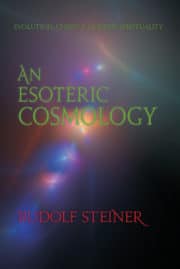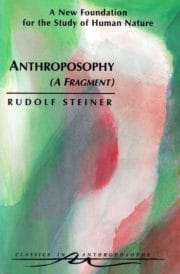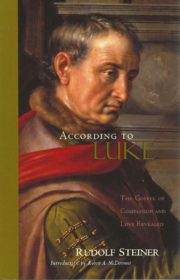Man’s Being, His Destiny, and World-Evolution
6 lectures, Oslo, May 16-21, 1923 (CW 226)
The lecture presented here were given by Rudolf Steiner at a series of public meetings in Christiana, Norway, in May, 1923. He had gone there at the invitation of Scandinavian friends to take part in the founding of the Anthroposophical Society in Norway. Upon their request for a series of public lectures he chose to talk about the fundamental anthroposophical problems connected with the being of man, the formation of his destiny and the relationship of the complete man to world evolution. Dr. Steiner, who was then late in life, responded to the warm interest of his audience with the vigor of a young man. As the Scandinavian sky and earth appear to blend into each other, so his inspiring worlds seemed to link his listeners with the eternal truths of man’s origins, his present needs and future aims.
In the very first of these lectures Dr. Steiner typically relates man’s being to the vast spaces of the cosmos in a discussion of the period between falling asleep and awaking and the path pursued by man between death and a new birth. From this beginning he traces human destiny working in the individual to the continuing course of mankind’s whole evolution. Finally, the destiny of man is contemplated in the light of the Mystery of Golgotha, and the influence of this event on man’s development on earth is revealed. The cycle closes with the thought that for man to reach God anew he must, in full consciousness of his connections with the Mystery of Golgotha, bring himself to be able to say with St. Paul, “Not I, but the Christ in me ”
About the Author
Rudolf Steiner (1861–1925) was born in the small village of Kraljevec, Austro-Hungarian Empire (now in Croatia), where he grew up. As a young man, he lived in Weimar and Berlin, where he became a well-published scientific, literary, and philosophical scholar, known especially for his work with Goethe’s scientific writings. At the beginning of the twentieth century, he began to develop his early philosophical principles into an approach to systematic research into psychological and spiritual phenomena. Formally beginning his spiritual teaching career under the auspices of the Theosophical Society, Steiner came to use the term Anthroposophy (and spiritual science) for his philosophy, spiritual research, and findings. The influence of Steiner’s multifaceted genius has led to innovative and holistic approaches in medicine, various therapies, philosophy, religious renewal, Waldorf education, education for special needs, threefold economics, biodynamic agriculture, Goethean science, architecture, and the arts of drama, speech, and eurythmy. In 1924, Rudolf Steiner founded the General Anthroposophical Society, which today has branches throughout the world. He died in Dornach, Switzerland.













Reviews
There are no reviews yet